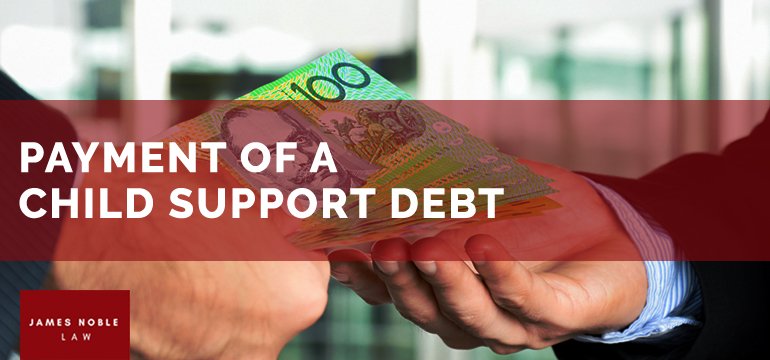
Payment and Recovery of a Child Support Debt
If an application has been lodged with the Child Support Agency, and for whatever reason, there is a debt outstanding on the assessment of child support by the agency, how is that debt recovered?
An assessment for child support by the Child Support Agency is normally paid by the employer of the person who owes child support (the payor). The person, normally the father, who is required to pay child support, will normally pay child support from the wages he (the payor) receives in his employment. Child Support Debt may occur if the employer goes into liquidation or for whatever reason is unable to make payments from the income payable to its employee. A debt may incur, and if payments are not made, the amount of the debt will increase.
Is an employer liable for any of this child support debt? No. An employer is not liable for such debt.
Again, a payor can leave his employment and not notify the child support agency of his new employment. The payor, of course, has an obligation to file his/her tax return each year which then provides details of his/her employment and the name of his/her employer. The child support agency has access to this information and can then reassess the amount of child support paid on the income set out in the payor’s last taxation return, which also provides details of the employer of that person. Child support is then paid from the income earned by the payor in his/her new employment and the debt can be recovered by such means. However, if the payor does not file a tax return, the child support agency does not have knowledge of the new employer and the debt will increase.
Child Support Lawyers
If child support is solely based on an application by child support lawyers and the assessment is made by the agency, any debt assessed can be recovered by the agency by the normal court process.
What if a child support agreement is registered and accepted by the Child Support Agency and the agreement sets out not only weekly, monthly, and/or other periodic payments, but also details lump-sum payments for child support, and payments, for example, children’s school fees and other expenses for the children? The Child Support Agency can only enforce periodic payments. It cannot enforce lump-sum payments. It does have some provision for enforcement of payments that are not solely periodic, such as school expenses for the children, if such expenses become payable pursuant to the assessment made by the agency.
Debt Enforcement
Any other debts outstanding for child support can be personally enforced by the payee (to whom the payment is to be made) through the Federal Circuit Court (Family Court) of Australia.
Payments for child support can be enforced by the agency and the payee through normal enforcement options, such as an enforcement warrant, which involves the sale of property such as motor vehicles and other assets, sequestration orders, third party debt notices where there is a debt owing by a third party to the payor, and the appointment of receivers for the business interests of the payor.


